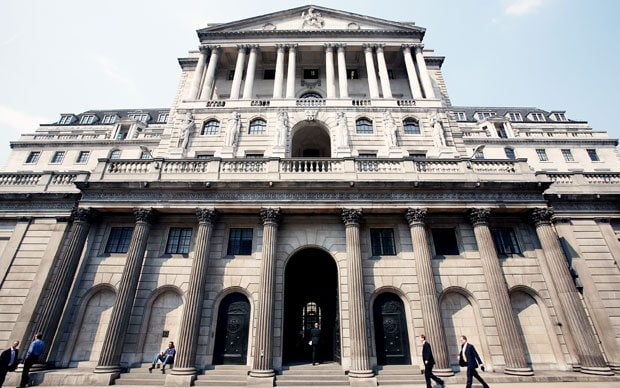The idea of creating a central bank backed digital currency is not a new thing. The digital currency community and central banks of various nations have floated this idea at one point or another. While most nations are yet to act upon it, the Bank of England is already doing the groundwork for such an implementation.
A ‘Staff Working Paper‘ published this month as part of the research commissioned by the Bank of England reports that introduction of a Bank of England backed digital currency may increase the gross domestic product of the Union. The paper titled “The macroeconomics of central bank issued digital currencies” is authored by John Barrdear and Michael Kumhof.
According to the authors, the Bank of England will be capable of increasing the country’s GDP permanently by about 3 percent with the introduction of a digital currency version of the existing fiat currency. In order to make such a significant change in the English economy, the central bank will have to issue digital currency units equivalent to 30 percent of the current GDP against government bonds. The proposal to create such digital currency was presented to the Lords Economic Affairs Committee by Ben Broadbent, the deputy governor of the Bank of England earlier today.
Ben has spoken about the idea of creating a blockchain based digital currency that can be operated by individuals and businesses alike in few other occasions as well. Unlike fiat accounts, all digital currency accounts can be managed by the central bank itself. The implementation of digital currency will also save a lot of money for the central bank, which would otherwise be spent on printing, distribution, and retrieval of banknotes to maintain enough liquidity in the market.
The report also outlines the risk of issuing central bank backed digital currency as it may lead to reduced liquidity in the banks. If the cash holdings of banks are reduced, then they will be unable to issue loans to customers, which in turn may hamper the economy. Also, a central bank issued digital currency can potentially make many private banks irrelevant as people can directly deal with the central bank, storing the digital money in their wallets instead of depositing in bank branches.
If the move to introduce digital currency is approved, the Bank of England may initially introduce a limited number of digital tokens for specific uses, like retail transfers etc.
Most of the data points and calculations in the report are based on empirical data and certain established models due to the absence of historical information on centralized digital currencies. The actual results, once the digital currency is introduced may vary from the report’s findings.
Ref: Finextra | Staff Working Paper | Image: The Telegraph
